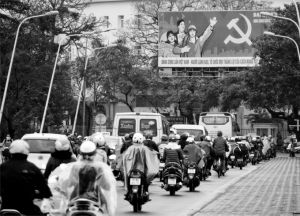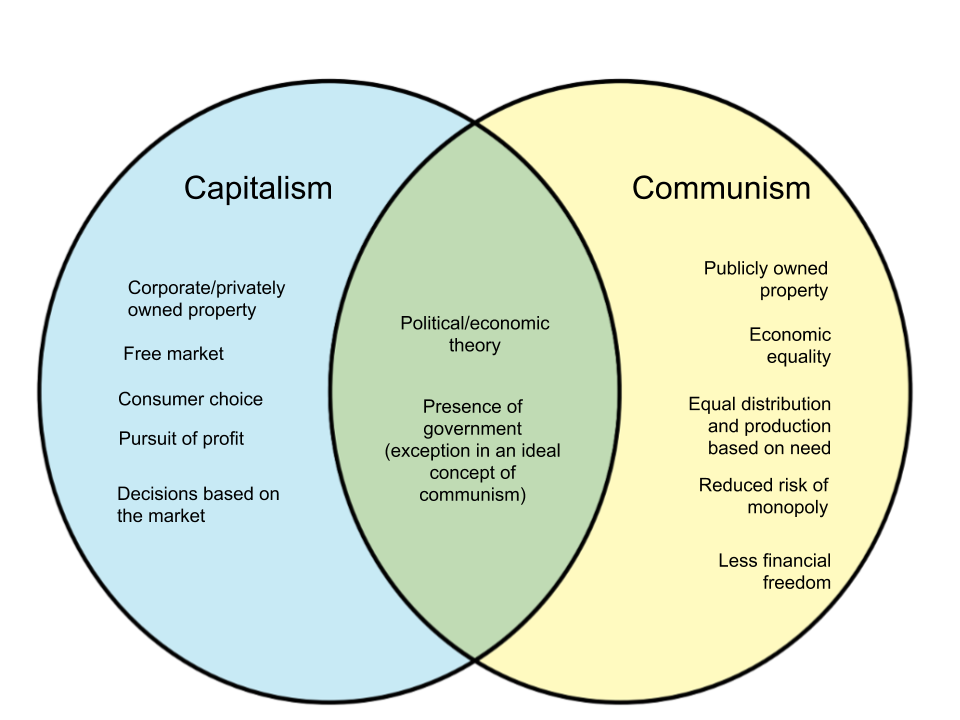Difference between Capitalism and Comunism
Capitalism and communism are two political and economic systems that completely contrast each other in different aspects. The two have differing beliefs, whether it is theory, purpose, government involvement or ownership. Here are the distinctions between capitalism and communism.
Capitalism is characterized by the concept of private or corporate ownership - property as well as means of production are owned and operated by individuals or companies. The main pursuit in a capitalist system is profit, thus, consistent production and purchase is required to create an efficient system. Economic decisions are influenced by a free market, and the role of the government is to lay down and implement rules to control an arbitrary business conduct.
Meanwhile, communism promotes the idea of an equal society - there is socioeconomic equality between all members, and property is owned by the community as a whole. Production and distribution is based on need, and everyone gets an equal share. The communist system does not have a free market. Profits are shared equally regardless of contribution to production. Communism means a government or state-controlled economy. In a perfect idea of communism, however, government does not even exist and everyone simply works together for sustainability and survival. The concept of private property does not exist in communism.
| Capitalism | Communism | |
|---|---|---|
| Definition | An economic/political system advocating the private or corporate ownership of goods and services for the purpose of profit. | A political theory that advocates a classless society with socio-economic equality, opposing the capitalist structure in that each property is publicly owned and goods equally distributed according to need. |
| Concept | Ownership is privately owned, economic decisions are influenced by the market; pursues profit. | Ideally classless and stateless, everyone works for everyone and receives equal compensation; no concept of private property. |
| Free Market | Yes | No |
| Distribution | Based on demand and supply, consumer choice. | Equal distribution regardless of contribution. |
| Production | Based on demand and supply. | Based on need. |
| Economic Decisions | Influenced by the market with rules and policies enforced by the state. | Ideally by the community; decisions made by the state based on needs and economic demands. |
| Variations | Pure capitalism, Laissez-faire capitalism, Right wing socialism. | Marxist communism, Trotskyism, Stalinism, Maoism, Christian communism, left communism, and many more. |
| Advantages | Consumer choice, economic efficiency, competition that drives innovation and growth. | Equality, accessibility of benefits to all, less risk of monopolies. |
| Disadvantages | Risks of monopoly, economic inequality | Hampers growth due to lack of competition, dictates the community, less financial freedom and consumer choice |


